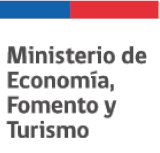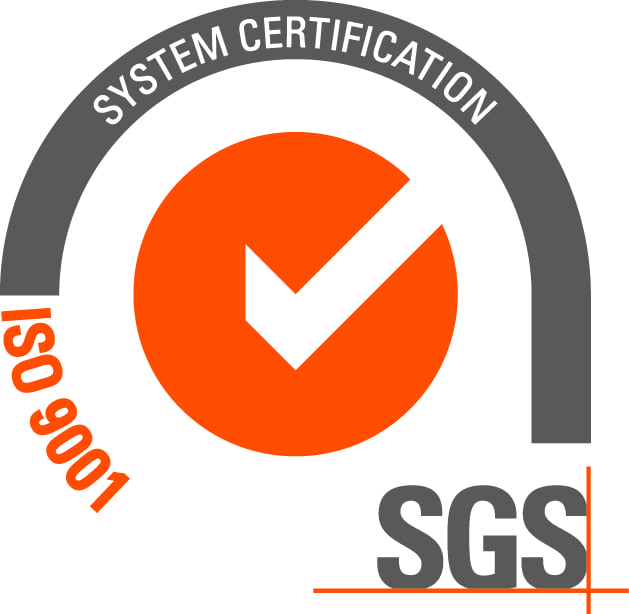
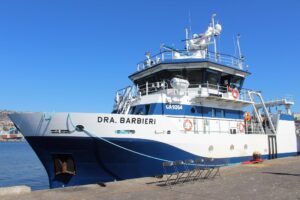 For the Monitoring of El Niño and its Impacts on the Ecosystems of the Southeast Pacific, and the Spawning Stock Assessment Cruises of Anchovy and Common Sardine.
For the Monitoring of El Niño and its Impacts on the Ecosystems of the Southeast Pacific, and the Spawning Stock Assessment Cruises of Anchovy and Common Sardine.
During the spring of each year, the Department of Oceanography and Environment (DOMA) of the Fisheries Research Division of IFOP conducts, within the context of three almost simultaneous cruises, the assessment of the spawning stock of anchovy between Arica and Coquimbo, as well as the assessment of the spawning stock of anchovy and common sardine between Valparaíso and the Chacao Channel. Simultaneously, and as part of the anchovy assessment cruise between Arica and Antofagasta, El Niño monitoring is carried out, along with the monitoring carried out in Ecuador, Colombia, and Peru.
Cooperation among the nations of the Eastern South Pacific is framed within the ERFEN Protocol, an agreement signed in 1992 by the countries of the Permanent Commission of the South Pacific (CPPS) to establish the Program for the Regional Study of the El Niño Phenomenon (ERFEN). The national counterpart in the oceanographic cruise program is the Fisheries Development Institute (IFOP), and its objective is to monitor the El Niño-Southern Oscillation (ENSO) phenomenon and its impacts on the marine and coastal ecosystems of the Southeast Pacific through scientific cooperation and the exchange of meteorological and oceanographic information.
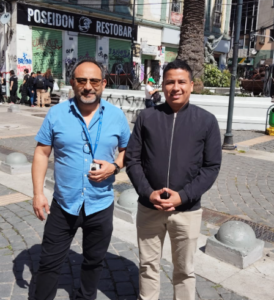 During the Chilean component of the joint cruise and as part of the CPPS exchange program, the Chief of Marine Meteorology at the Oceanographic Institute of the Ecuadorian Navy (INOCAR), Meteorological Engineer CBOP-HI, Arturo Soto Méndez, will participate as a researcher on board. Oceanographer Andrés Varas is participating in the cruise currently underway in Ecuador as part of the same exchange program.
During the Chilean component of the joint cruise and as part of the CPPS exchange program, the Chief of Marine Meteorology at the Oceanographic Institute of the Ecuadorian Navy (INOCAR), Meteorological Engineer CBOP-HI, Arturo Soto Méndez, will participate as a researcher on board. Oceanographer Andrés Varas is participating in the cruise currently underway in Ecuador as part of the same exchange program.
On the other hand, from a fisheries perspective, the spawning stock assessment derived from cruises is a biological and fisheries process that estimates the number of spawning fish in a population to ensure the sustainability of the resource, seeking to predict future yields and the impact of changes in fishing effort. The Chilean Fisheries Development Institute (IFOP) periodically conducts these assessments in various hydrobiological resources, in order to estimate spawning stock biomass, assess the sustainability of the resource, and help forecast fishing yields based on prevailing and future environmental conditions. This allows the fisheries authority, scientific committees, and management committees to be supported with scientifically sound data and information for responsible fisheries management, preventing overfishing and ensuring the long-term health of fish populations.
The cruises are part of the Spawning Stock Assessment projects of the Permanent Research Program for the Regulation of Fisheries and Aquaculture, carried out by IFOP, the main scientific advisor to the Fisheries Authority, as recognized and mandated by the General Fisheries and Aquaculture Law.
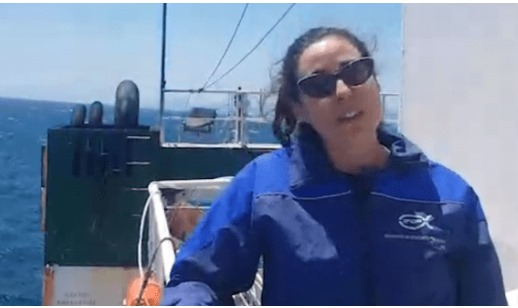
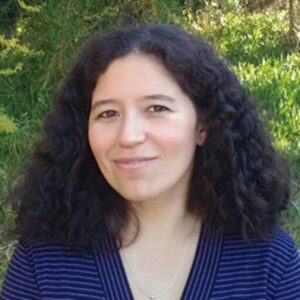

The projects are led by three distinguished DOMA researchers, MSc. Catherine Grendi and Drs. Jessica Bonicelli and Katty Donoso, while oceanographer Hernán Reyes is in charge of the overall coordination of the three projects.
IFOP scientific vessels, the B/I Abate Molina and the Dra. Barbieri, participate in the cruises for these projects, where biofisheries, oceanographic, meteorological, and zooplankton observations are conducted.
These platforms also allow for whale and marine mammal sightings on assessment cruises, thereby gathering information necessary for Chile’s response to the United States Marine Mammal Protection Act, which restricts the import of fishery products to that country if marine mammal populations are being affected by fishing activities.
Furthermore, deep-water monitoring will begin in mid-latitudes, with measurements taken up to 1,000 meters deep off Valparaíso. These measurements include, for the first time, methane measurements at great depths, a gas whose greenhouse effect is four times more intense than carbon dioxide. This gas will be measured thanks to the CORFO Sustainable Productive Development (DPS) Funding, which is financing the IFOP Integrated Climate Change Monitoring System Strengthening project: “Ocean Prediction, Observation and Visualization System (S.A.P.O.Chile) for resilient fisheries, ecosystems where aquaculture is developed, Management Areas and Marine Protected Areas under the context of climate change.”



